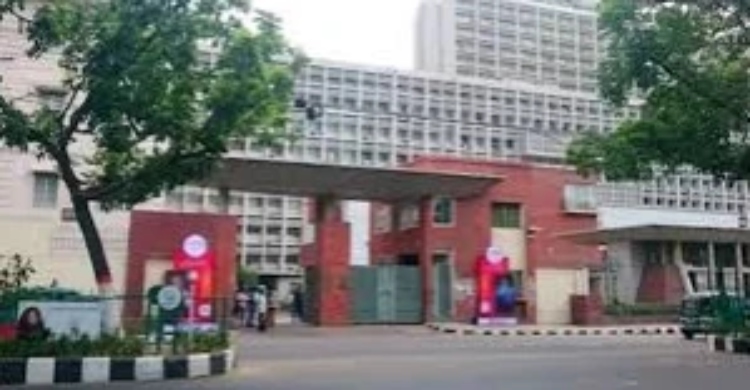Turmoil rocks public administration amid fresh wave of protests


Bangladesh’s public administration remains mired in chaos as several employees’ associations have launched fresh protests demanding sweeping reforms, removals, and policy reversals, further exposing the instability of administrative discipline following the fall of the Awami League government.
Several groups of current and former officials have taken to the streets again, protesting issues ranging from alleged political appointments to policy discriminations among cadres.
Demonstrations, sit-ins and human chains inside and outside the Secretariat have become a regular affair with rising tensions among displeased sections of the bureaucracy.
As disorder grows and agitations intensify, insiders warn that failure to restore order in public administration may severely hamper government functions in the days ahead.
Discord Deepens
Protest programmes continue under various banners including the Discrimination Elimination Forum for Retired Officers (Additional Secretary) and Anti-Discrimination Employee Unity Forum who are demanding immediate dismissal of politically-linked and contractual officials.
The government's recent move to draft a unified recruitment policy for non-cadre officials and issuance of an ordinance to dissolve the National Board of Revenue (NBR) has only added fuel to the fire.
The Bangladesh Secretariat Officers and Employees Coordinated Council is agitating for six-point demands while the Inter-Cadre Discrimination Elimination Council—representing officers from the 25 cadres except administration cadre—has long been campaigning for reforms to ensure fair promotions and an end to quota-based appointments to posts of deputy secretary and above.
Besides, NBR officers have announced a full-fledged strike demanding repeal of the ordinance splitting the revenue board into two divisions.
Protests also erupted over demands to upgrade administrative and personal officials to supernumerary assistant secretary (non-cadre) positions and to elevate second and third-class employees to secretarial ranks.
Retired officers have joined the fray as well protesting under different banners and staging demonstrations with their own sets of demands.
July Oikya's Pressure Mounts
A relatively new group, July Oikya, recently published a list of 44 allegedly partisan secretaries and 95 magistrates still in service, accusing them of being loyalists of the previous Awami League regime.
The group is calling for their compulsory retirement and has issued a seven-point demand warning of a "March to Secretariat" movement if their demands are not met by May 31.
Contacted by UNB, Public Administration Secretary Mohammad Mokhlesur Rahman declined to comment on the situation.
But, several officials at the ministry, speaking on condition of anonymity, admitted that the July Oikya list has triggered immense pressure on the government’s top brass.
Policymakers are reportedly uneasy over Secretary Mokhlesur Rahman’s inability to restore order in the administration.
“The ministry is facing operational paralysis due to constant demands and unrest,” one official said.
Public Servants Protest ‘Repressive’ Ordinance
The Secretariat Officers and Employees United Council held demonstrations on Sunday opposing the draft Public Service (Amendment) Ordinance, 2025.
They threatened not to return to work until the withdrawal of the draft ‘Public Service (Amendment) Ordinance 2025.
Md Badiul Kabir, president of the Bangladesh Secretariat Officers and Employees United Council, came up with the announcement while demonstrating at the main entrance of the Secretariat.
They met secretaries of the Law and Public Administration ministries urging them to drop the ordinance’s punitive provisions.
The controversial draft ordinance—approved on May 22 at an advisory council meeting—has drawn severe backlash for incorporating clauses that allegedly allow summary dismissal of public servants without due process.
Protesters argue that this contradicts constitutional protections and could be misused to suppress dissent within the civil service.
Md Badiul Kabir, president of the Coordinated Council, told UNB that the ordinance includes "coercive clauses" which would allow removal of employees without a chance to defend themselves.
“This is a black law. The 2018 Public Service Act already outlines codes of conduct and disciplinary provisions. There is no justification for inserting new draconian elements,” he said.
More Agitations Likely
Anti-Discrimination Employee Unity Forum member secretary Kazi Meraz Hossain expressed concerns saying the government must terminate all partisan and controversial contract-based officials.
Govt employees threaten to continue strike at Secretariat
“This movement is part of a wider demand to rid the public service of fascist beneficiaries and restore neutrality,” he said, adding that a sit-in is scheduled for May 25 at the Cabinet Division and Ministry of Public Administration to press home their demands.
On May 13, nearly 40 members of this forum besieged the office of the Additional Secretary (Recruitment and Promotion) at the Ministry of Public Administration, disrupting operations throughout the day.
Deputy Secretary Jamila Shabnam was allegedly harassed and her phone snatched during the protest.
Revenue Officers Defy Govt Statement
Following the May 12 ordinance dissolving the NBR, revenue officials from Customs, VAT and Income Tax departments launched a series of protest programs, demanding the withdrawal of the order and the resignation of the NBR chairman.
They also sought transparency regarding the recommendations of the advisory committee.
Though the Finance Ministry later clarified that the government had not decided to split the NBR ‘at this moment’, protestors rejected the assurance and vowed to continue their agitation.
Pen-Down Threat from 25 Cadres
Officers from the 25 non-administration cadres, long aggrieved by alleged discrimination in promotions and postings, have also threatened to intensify their pen-down strike unless their demands are addressed.
Former Secretary Abu Alam Md Shahid Khan said the post-Awami League administrative order has yet to return.
“Leadership weakness has prevented the current government from containing the situation. Skilled officers must be placed where they are most effective,” he said, warning of further unrest unless prompt action is taken.
Another former secretary, Abdul Awal Majumdar, described the situation as a “colossal failure of the government”.
“Much of this could have been resolved early if competent people were placed in leadership and if decisions were taken with careful evaluation,” he added.
